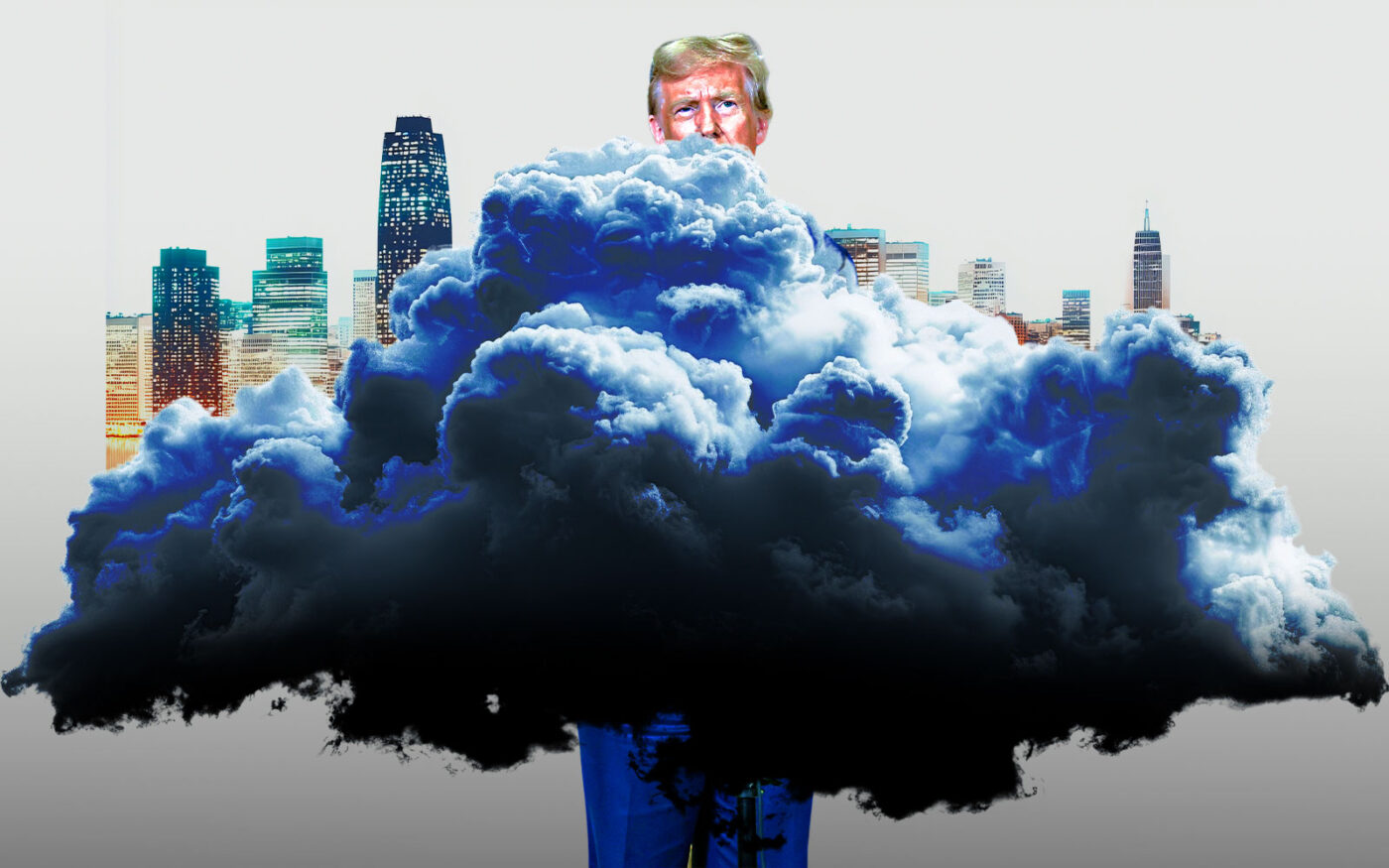President Donald Trump’s tariffs may hit the Bay Area’s economy harder than other regions, but so far the short-term impact on the commercial sector thus far has been a “cloud” of uncertainty on a commercial market that was finally showing forward momentum.
“The protectionist agenda is really bad for regions that are successful in the global economy and we are the most successful global economy,” according to San Francisco Chief Economist Ted Egan, speaking at a conference last week on the state of the city hosted by University of California, Berkeley’s Fisher Center for Real Estate + Urban Economics.
Egan said he was “waiting for the dust to settle” before determining what the overall economic impact would be for the city, but joked that he “threw away a lot of my 12- to 24-month economic forecast a few weeks ago and I hope I can dust them off again in 90 days.”
The tax cuts in the president’s first term were a major stimulus for the local economy, but a trade war with China, a major producer in the tech supply chain, would be problematic, Egan said. While some new American manufacturing jobs are likely to be created, they almost certainly won’t be in the expensive Bay Area, he added.
“We’re likely to experience the pain and not very much of the upside of this policy if it goes into place as it looks,” Egan said.
San Francisco’s economy and its commercial market are largely driven by the growth of tech companies and venture funding, which has been on an upswing, Swig CEO Connor Kidd told The Real Deal. For now those companies are still growing and looking for space, he said, noting that conditions can change at any moment based on Trump’s next social media post. He added that early-stage companies aren’t really focused on the macroeconomy since they don’t have a product to sell yet.
His bigger concern is that the general uncertainty, if it keeps up, could hit office demand a few quarters down the line.
“Businesses really hate uncertainty. It makes it difficult to plan and make decisions,” he said. “So I think the more that this goes on that it’s likely to have a negative effect more broadly and you’re probably going to see the [venture capitalists] start to pull back and say they’re not as certain they’ll be able to exit.”
Uncertainty “adds a cloud” over the long-term thinking required to sign a major lease, agreed Maggie Kadin, regional director for Northern California at Tishman Speyer. Office takers are contending with making real-time decisions about headcount, products and services as the stock market rises and falls, she told TRD.
In the longer term, it’s hard to know now how tariffs will impact future phases of Mission Rock, a development by Tishman and the San Francisco Giants.
“It’s trying to put your finger on, what does it cost to build a building? That changes pretty dramatically depending on which tariff scheme we’re working under,” she said.
The tariffs’ impact on construction is a major concern for office owners as well, Kidd said. He’s starting to see contractors put language into bids that prices are subject to change. He predicted contractors will try to bring in supplies from lower-tariff countries, but said it’s still going to drive up costs and make it more difficult to transact.
A February report from Boston Consulting Group estimated that the Trump tariffs would add $22.4 billion to the cost of imported steel and aluminum, and up to an additional $29 billion for derivative products like nuts, bolts, tubes, pipes and other common construction materials.
Swig is already underway on building out spec suites to attract tenants to its San Francisco office properties, so it can’t really stop midway, and just has to hope to wrap up before the tariff impacts hit harder, he said.
It’s still “really early,” but the investment market reaction has been “tempered” outside of “a little bit of volatility in the financing markets,” Jeff Weber, managing director at Eastdil Secured, said at last week’s state of the city event.
“It’s hard to rise and fall with every sort of reaction that comes out of Washington,” he said.
The impact on international investors has been minimal thus far as well, he said, mainly because activity on that front was already low. Chinese investment has been negligible for several years, and Canadian funds have been less active more recently because they’ve been “playing defense within their existing portfolio,” he said.
As far as the leasing market goes, anecdotally, industrial has been most impacted so far, he added, first because it’s already been “priced to perfection” and secondly because of the direct impact of the tariffs on trade.
Read more


